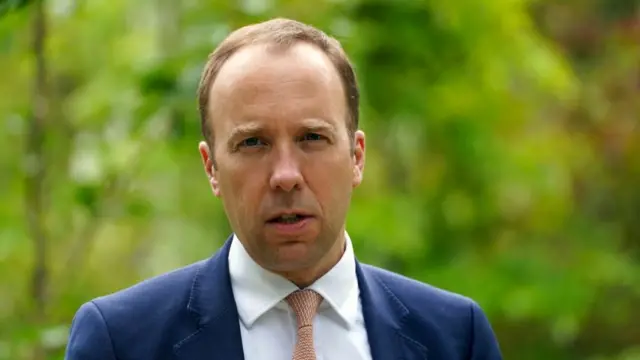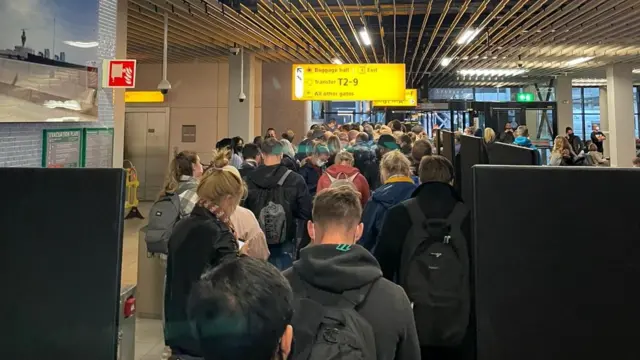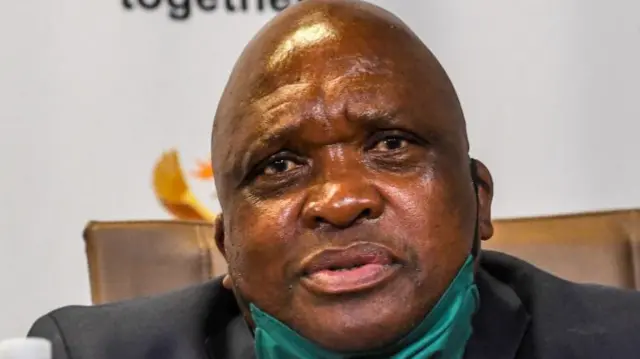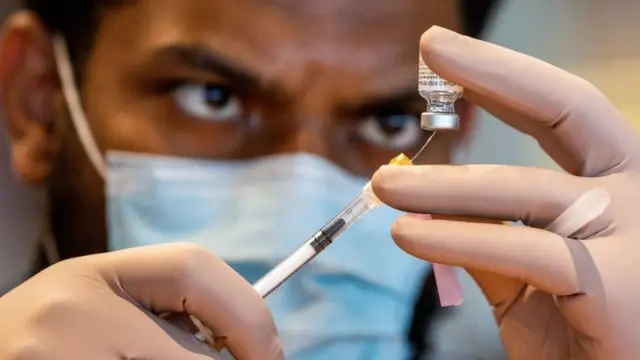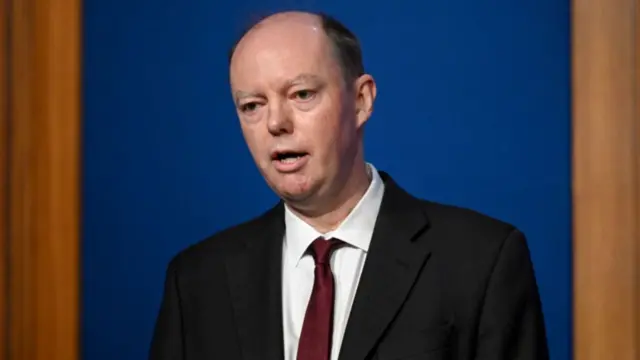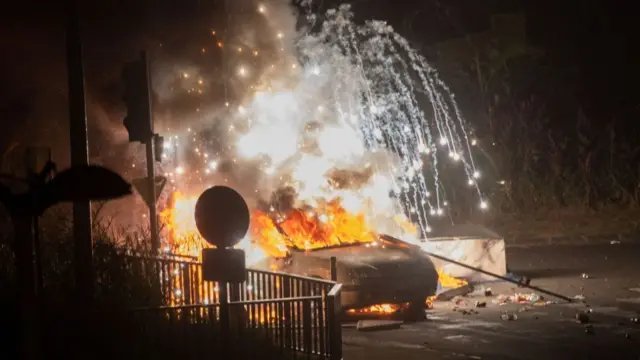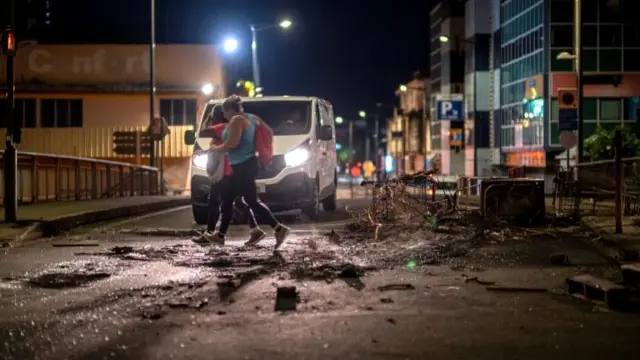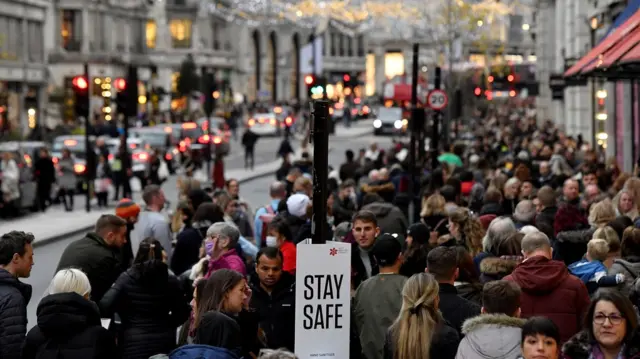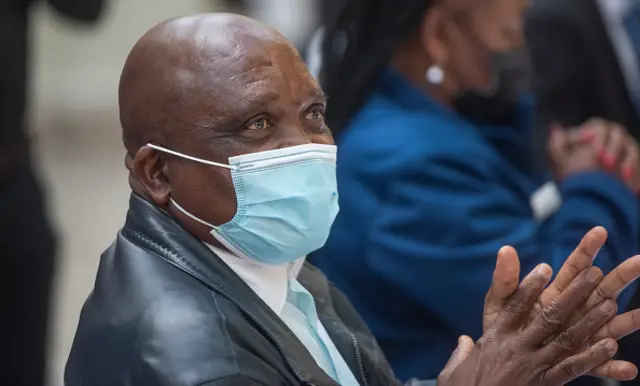Share prices plummet as shaken investors reactpublished at 18:54 GMT 26 November 2021
 Theo Leggett
Theo Leggett
BBC International Business Correspondent
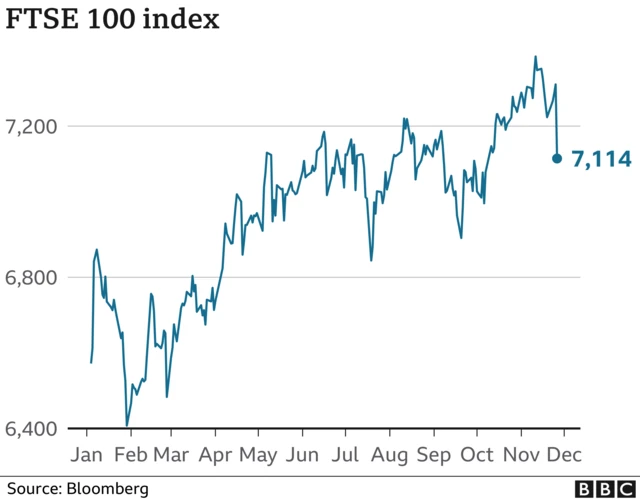
Investors are clearly shaken.
The introduction of travel restrictions to contain the new variant has come at a time when the number of Covid cases is Europe is already climbing rapidly and winter is approaching.
Inevitably, shares in airlines, tourism operators and hotel groups have been badly hit.
British Airways' parent, International Airlines Group, closed down 15%, while the aircraft engine maker Rolls Royce was down 12%.
But analysts said investors were also fearful that the new variant could potentially lead to more widespread restrictions on daily life and affect global trade.
Shares in banks, fuel suppliers and mining groups also fell sharply, while the price of oil dropped by more than $9 a barrel to levels last seen in mid September.
A steep fall in the oil price is often seen as a signal that investors are concerned about a possible slowdown in economic activity.
